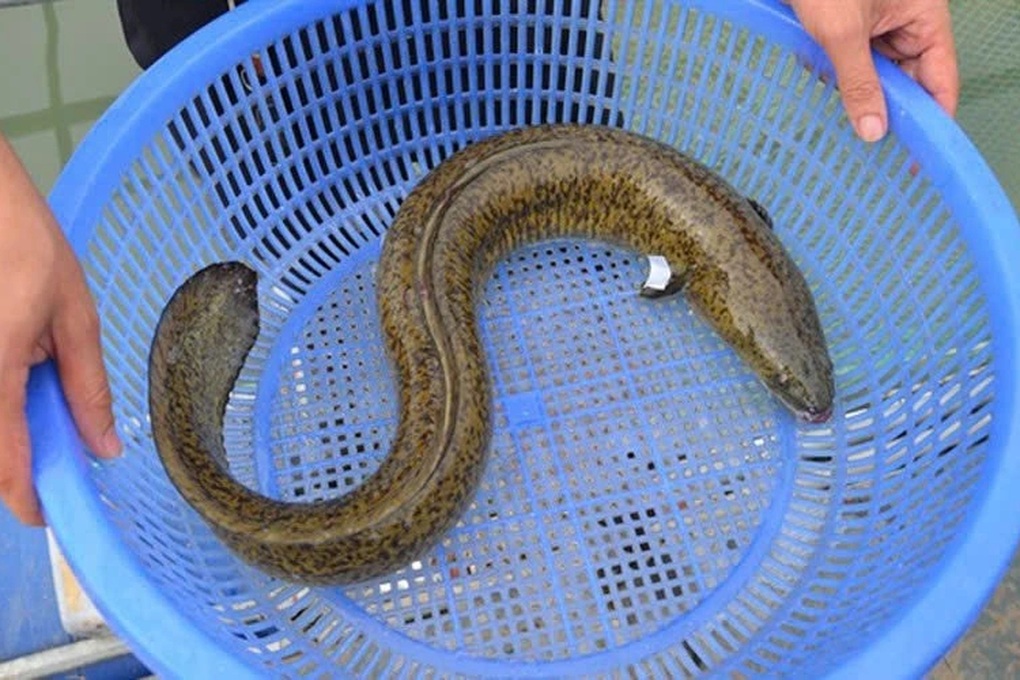Many clusters of cases hospitalized after eating seafood
Information from the Poison Control Center said that 8 people in a family went to the emergency room after eating seafood at Ky Anh beach, Ha Tinh .
Previously, on July 24, a family group of 14 people had dinner at Ky Anh beach, with seafood dishes such as eel, shrimp and oysters.
Several hours after the meal until the next morning (July 25), many people in the group began to experience worrying symptoms such as numbness in the tongue and mouth, muscle aches, fatigue in the limbs and joints throughout the body. Some people also had digestive disorders (loose stools), a burning sensation in the throat and chest tightness.
That same evening, four patients in the family (three adults and one child) went to the Poison Control Center for emergency care.
"The patients were all conscious but had common symptoms of tongue numbness, body aches and were diagnosed with ciguatera poisoning. Other vital signs were within stable limits," said Dr. Nguyen Huy Tien, Anti-Poison Center.
After just one day of treatment, the 4 patients had all of the above symptoms gone, were discharged from the hospital, and were instructed to monitor their health at home.
Then, on July 26, a family of four in Hai Phong (including a husband, wife, and two children) went to the Poison Control Center for emergency treatment after experiencing unusual symptoms after eating red snapper ordered from a restaurant.
Mr. T. (the husband) said that after eating red snapper for about 90 minutes to 4 hours, the whole family experienced symptoms of stomachache, nausea, diarrhea, cramps and muscle pain throughout the body. Mr. T.'s wife and daughter also showed signs of sensory disturbances.
"Not only did I have stomachache, nausea, and diarrhea, but I also felt dizzy, my blood pressure dropped uncontrollably, and my hands burned every time I came into contact with cold water from the tap. My whole body felt weak and tired, and I couldn't walk," Mr. T's wife shared.
Upon arrival at the Poison Control Center, all four were found to have slow heart rates. The patients were diagnosed with ciguatera poisoning, and their condition improved and they were about to be discharged.
How dangerous is ciguatera toxin?
Dr. Nguyen Trung Nguyen, Director of the Poison Control Center, said that ciguatera poisoning occurs when eating fish living in coral reefs that have accumulated a very strong neurotoxin called ciguatoxin.
This toxin originates from a type of microalgae that is food for many small fish, which in turn are food for larger fish, and finally food for coral reef fish such as barracuda, grouper, snapper, sturgeon, anchovy, amberjack, eel, grouper, parrotfish, sea bass, etc.

When eating marine fish at risk of ciguatoxin contamination, eat in moderation and do not eat fish organs (Illustration: Getty).
Due to the process of "big fish swallowing small fish" as above, toxins accumulate more and more in large fish, leading to people eating enough toxins to cause poisoning.
“Ciguatera poisoning is the most common type of fish poisoning, more common than pufferfish poisoning, but it is rarely noticed. Ciguatoxin is completely colorless, odorless, tasteless and is not destroyed by any processing method such as cooking, freezing or pickling.
A fish carrying toxins still looks completely normal, so it is difficult to recognize before eating,” said Dr. Nguyen Trung Nguyen, Director of the Poison Control Center.
Therefore, after eating seafood, if symptoms appear such as: Nausea, vomiting, abdominal cramps, diarrhea; numbness, tingling around the mouth, lips, tongue and then spreading to the limbs; hot-cold sensation disorder, touching water or cold objects causes a sharp, burning pain like an electric shock (this is the most typical symptom); slow heart rate, low blood pressure... everyone needs to see a doctor.
Neurological symptoms can persist for months or even years, affecting quality of life.
When eating fish with a high risk of causing ciguatera poisoning (barracuda, red snapper, sturgeon, anchovy, amberjack, eel, grouper, parrotfish, sea bass, shark...), you should not eat too much, and do not eat the fish's organs because that is where the toxins are concentrated.
Meanwhile, with the above fish species but farmed fish, there will not be natural toxins from toxic algae as above.
Source: https://dantri.com.vn/suc-khoe/hai-gia-dinh-8-nguoi-te-bi-luoi-dau-nhuc-nguoi-sau-khi-an-hai-san-20250802080439244.htm


































































































Comment (0)